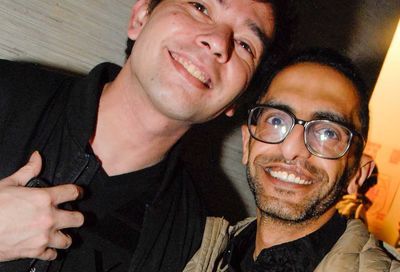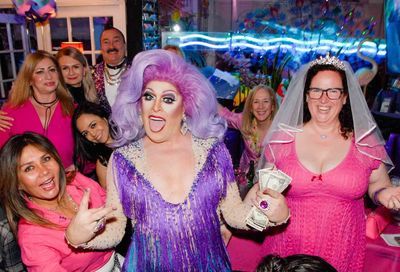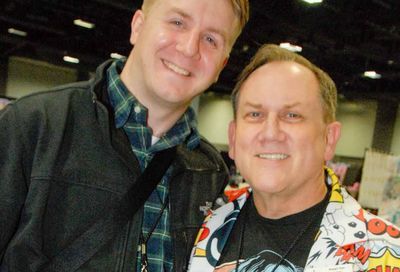A Star Is Born
He may not be the first, but Jason Collins is a pioneer just the same
Jason Collins is not the first active professional athlete to come out. Tennis star Martina Navratilova came out in 1981. Her courageous act, however, was no threat to male heterosexual dominance. Few people even know that baseball player Glenn Burke came out in the late 1970s, because sports writers at the time responded with a wall of silence.
Most recently, top WNBA draft pick Brittney Griner came out on April 17. The girls are way ahead of the boys here.
None of this diminishes the import of what happened when Collins came out in Sports Illustrated on April 29. It was a game changer. As Martina said, it “will save lives.”
Collins is a class act, a thoughtful, gallant man who could not be better suited to this moment had we auditioned a thousand people. He is confident, strong and masculine – a walking refutation of anti-gay stereotypes. He already proved he has the grit and talent and discipline to last 12 years in the NBA. His new role requires verbal skills and poise that he amply demonstrates in every interview. Just by entering the arena, he challenges his colleagues and countrymen.
Collins quickly received congratulatory calls from President Obama, President Clinton and Oprah Winfrey. NBA Commissioner David Stern praised him, as did a host of players. Even Tim Hardaway, who worked to redeem himself after his homophobic response to John Amaechi’s coming out in 2007, paid tribute.
There were naysayers. Chris Broussard’s accusation on ESPN that Collins was in “open rebellion to God” set off complaints about a sports analyst straying far outside his lane. Media critic Howard Kurtz, after falsely claiming that Collins had not disclosed his past engagement to a woman, was rebuked and dropped by the Daily Beast. Bryan Fischer of American Family Association, apparently unfamiliar with professional locker rooms, painted a lurid picture of Collins eyeballing his naked teammates. (In the unlikely event Fischer finds himself trapped in the shower with a rapacious athlete, my advice is to close his eyes and think of England.)
Dr. Ruth Westheimer, of all people, called Collins’s coming out “sad” because a person’s sexuality is “a private matter.” This stems from the old double standard of associating straight relationships with love and care while reducing gay relationships to sex.
Collins did not write about sex. This was about his right to pursue his own happiness, to become whole and free. Having fought his way to self-acceptance, he has lent his strength to uncounted youth whose dreams would otherwise be hemmed in by intolerance and social pressure.
His easy humor with twin brother Jarron in the Oprah interview, and with Shaquille O’Neal and Charles Barkley on TNT, reveals Collins as a man comfortable in his own skin. His sense of community is shown by his choice of jersey number 98 in honor of Matthew Shepard. His breaking the anti-gay barrier in major league sports establishes kinship with those who came before him, and those who will follow. His grace under pressure can show others a way out of despair.
Collins’s faith strikes a chord in the African-American community, like that of straight ministers whose leadership was crucial to recent marriage-equality victories. He stands at the contentious intersection of race, sexual orientation and religion. He was driven not by hunger for the limelight but by faithfulness to his nature and his conscience. He could not answer the call of leadership from the sidelines or the shadows.
On April 28, Collins was a respected journeyman backup center. On April 29, he found stardom in the hard and brave act of becoming a hero and role model for sexual minority youth. Lighting a path for others – few stars shine brighter than that.
Richard J. Rosendall is a writer and activist. He can be reached at rrosendall@starpower.net.
Support Metro Weekly’s Journalism
These are challenging times for news organizations. And yet it’s crucial we stay active and provide vital resources and information to both our local readers and the world. So won’t you please take a moment and consider supporting Metro Weekly with a membership? For as little as $5 a month, you can help ensure Metro Weekly magazine and MetroWeekly.com remain free, viable resources as we provide the best, most diverse, culturally-resonant LGBTQ coverage in both the D.C. region and around the world. Memberships come with exclusive perks and discounts, your own personal digital delivery of each week’s magazine (and an archive), access to our Member's Lounge when it launches this fall, and exclusive members-only items like Metro Weekly Membership Mugs and Tote Bags! Check out all our membership levels here and please join us today!




















